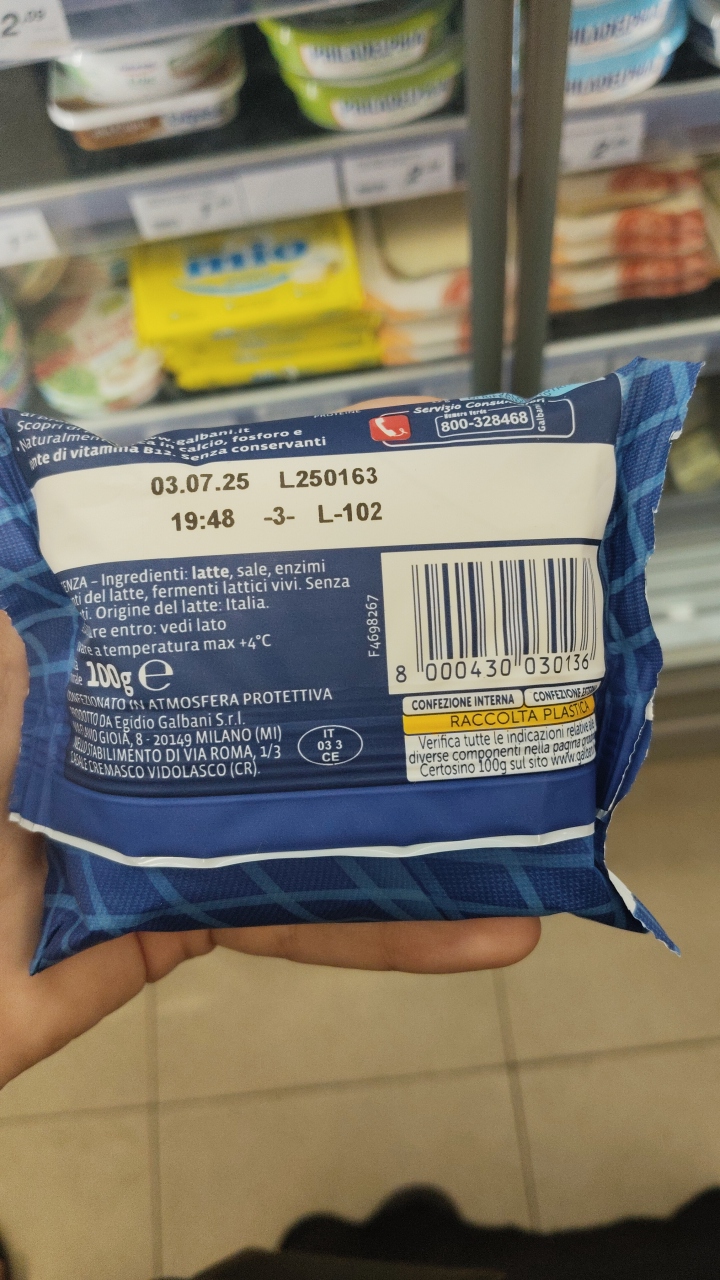
Barcode: 8000430030136
HALAL
📝 Reason: Enzimi (enzymes) is the only ingredient of concern because their origin may be animal or microbial. Islamic law requires enzymes derived from Halal sources, and if the source is unknown or not certified, they become doubtful. According to IFANCA and other Halal certifiers, enzymes must be Halal certified to be sure of compliance. Quran 5:3 prohibits consumption of non-Halal slaughtered animals, which may relate to animal enzymes. Since there is a doubtful ingredient, the entire product is considered ‘Doubtful’ (Halal_Result: 2).
🏷️ Category: Dairy
📄 Certificates: 100G, Vegetarisch
Ingredients:
Details
Understanding the Halal Status of the Product
In the quest for Halal products, consumers are increasingly concerned about the compliance of food items with Islamic principles. Halal, which means ‘permissible’ in Arabic, encompasses all aspects of food quality, sourcing, and preparation. Today, we delve into the Halal status of a product that contains an intriguing mix of ingredients such as latte (milk), sale (salt), enzimi (enzymes), and fermenti lattici vivi (live lactic acid bacteria).
Decoding the Ingredients
The product’s ingredient list is relatively straightforward, consisting primarily of common food items. However, it’s essential to scrutinize the Halal compliance of each component to ensure it meets Islamic dietary laws.
1. Latte (Milk)
Latte, which translates to milk in Italian, is widely consumed and considered Halal if derived from Halal animal sources, primarily cows. As long as the milk does not contain forbidden additives or is not processed with animal rennet from non-Halal animals, it maintains its Halal status. Milk itself is a staple in Halal diets, offering essential nutrients without compromise. Source.
2. Sale (Salt)
Sale is the Italian term for salt, a naturally occurring mineral. Salt, being mineral-based, is inherently Halal unless tainted with non-Halal substances. As a ubiquitous flavor enhancer, it poses no risk to those following Halal dietary laws and is safe for consumption. Source.
3. Enzimi (Enzymes)
The concern arises with enzimi or enzymes, as these can originate from various sources: animal, microbial, or plant. The Halal status of these enzymes depends significantly on their source. In many cases, enzymes are derived from non-Halal animal origins like animal rennet, which is prohibited in Islamic law. Therefore, unless clearly expressed that these enzymes are sourced from Halal-certified sources, they may render the product as doubtful—or worse, Haram. To ensure compliance, it’s advisable to look for Halal certifications. Source and Source.
4. Fermenti Lattici Vivi (Live Lactic Acid Bacteria)
Fermenti lattici vivi, or live lactic acid bacteria, are primarily used in products like yogurt and cheese. These bacteria are typically of microbial origin, which makes them Halal unless grown on non-Halal mediums. However, it’s rare for dairy cultures to be developed this way. Thus, live lactic acid bacteria stand in good stead regarding Halal compliance.
The Overall Halal Status
Based on the analysis of the ingredients, the product’s overall Halal status has been classified as ‘Doubtful’ due to the uncertainty surrounding the origins of the enzymes included. In environments where the source of enzymes is not explicitly stated as Halal, consumers are advised to exercise caution. The principles of Halal dietary laws, as stipulated in the Quran, dictate that any product containing animal-derived ingredients must be thoroughly vetted for compliance (see Quran 5:3).
Certifications and Compliance
The product is categorized within the Dairy sector, with certification indicating Vegetarian standards. However, it’s crucial to identify whether the enzymes present are Halal-certified by recognized bodies like IFANCA or others to establish confidence in the product’s compliance with Halal regulations.
Conclusion
Choosing Halal products is vital for many consumers who adhere to Islamic dietary laws. While the primary ingredients in this product (latte, sale, and fermenti lattici vivi) are generally Halal-approved, the uncertainty surrounding the enzymes raises a flag. It is always prudent to seek clarification from manufacturers or refer to certifications that explicitly confirm Halal compliance.
